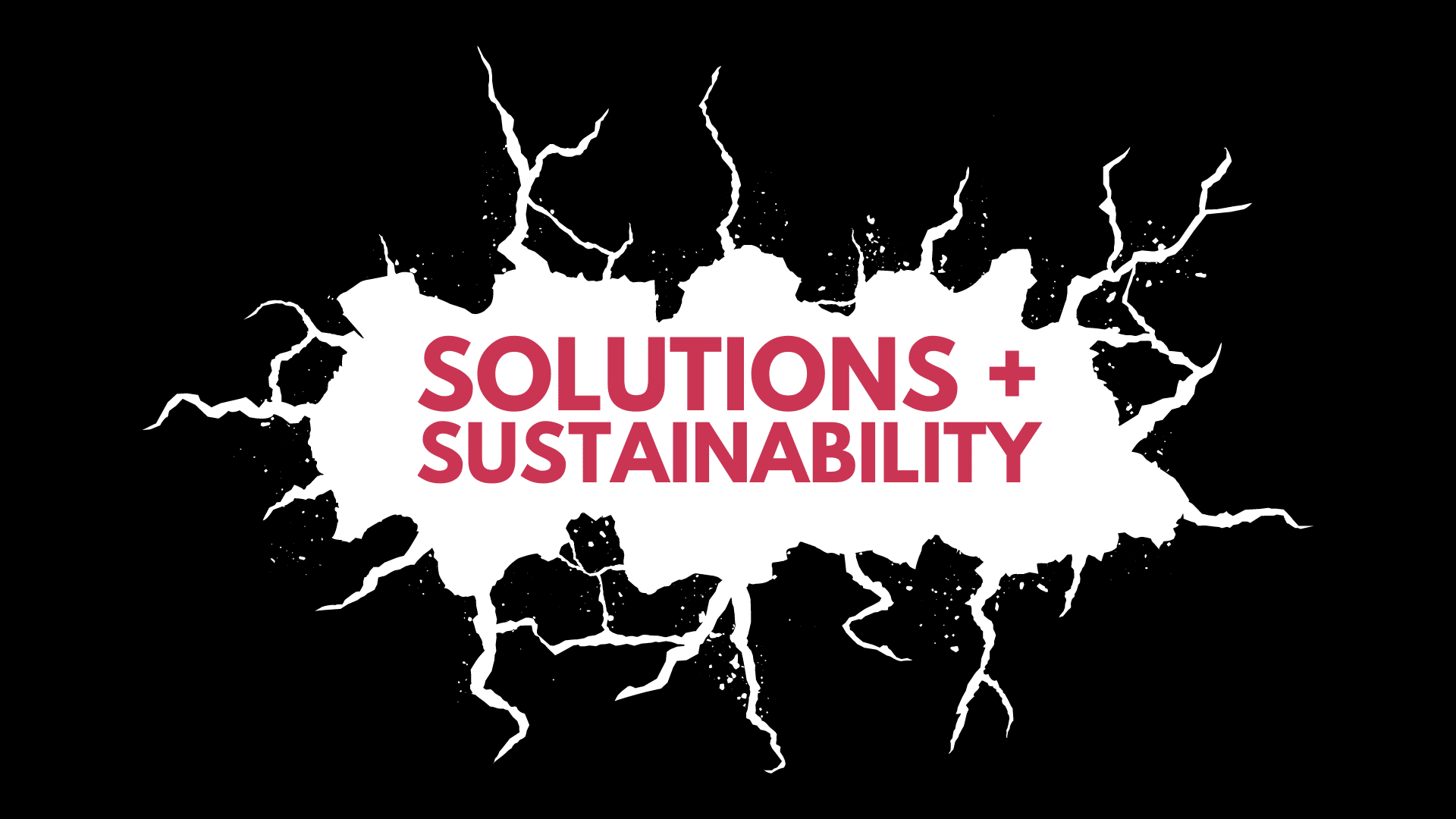Krystal Knapp: New Jersey news needs solutions and sustainability to survive
By Krystal Knapp
Editor’s note: This essay is part of a series of 10 posts that the Center for Cooperative Media at Montclair State University is publishing in 2022 in celebration of its 10th anniversary. The Center approached 10 New Jersey journalists and asked them to talk about what they want to see happen in our news ecosystem here over the next decade.
I was asked to write a column for the 10th anniversary of the Center for Cooperative Media at Montclair State University envisioning what the news ecosystem will look like in New Jersey 10 years from now. Though many academics and journalists routinely speculate about the future of news — during a period of frequent and rapid change that constantly presents new challenges and opportunities — I instead will highlight three core areas we need to focus on in order to remain resilient and build capacity in the state, so that we have a thriving news ecosystem that serves our residents’ information needs and bolsters our democracy a decade from now.
First, it is important to take a look at where we are now. Sandwiched between two major media markets, New Jersey has always had a weaker news ecosystem even though it is the 11th most populous state in the country. Gov. Chris Christie’s selling off of the state’s public broadcasting stations didn’t help matters, and the continued consolidation of media ownership at all levels has made the situation more dire. Some rural, urban, and suburban areas in the Garden State have become news deserts, while once-great larger newspapers have slashed staff. On the bright side, local and state news startups have flourished in New Jersey, with pioneers like Baristanet and NJ Spotlight News leading the way early on.

Krystal Knapp (Photo: Twitter.)
We also have the Center for Cooperative Media, which has helped nurture and strengthen such ventures, providing journalists with training and networking opportunities while also connecting them with other resources and supporting projects with a goal of strengthening our democracy at a time when it is strained and threatened. No other state has a similar resource serving news outlets. I wish everyone at the Center another decade of success as they seek new ways to support journalists and our state.
In order to build up our news ecosystem so that it thrives a decade from now, on the editorial side, media organizations need to practice constructive journalism. On the business side, they need to learn from and build on the lessons from successful media businesses. On the funding side, funders need to invest in projects that create and strengthen sustainable, professional media ventures that do original reporting in a variety of ways, from news websites to newsletters, podcasts and other forms of information distribution.
Plenty of news businesses serve as aggregators that repackage and distribute news. We don’t need more of these services, or press-release repositories. Original reporting that is relevant to a community’s needs will set an organization apart and create value for readers. This kind of reporting, which provides context on issues, makes use of public records, and shares information from public meetings and community forums, costs money. But is essential to democracy and the functioning of society at all levels.
In doing this original reporting, journalists need to practice constructive journalism that takes a solutions-focused approach to covering the news and empowers residents to respond constructively. In constructive journalism, the focus is on potential solutions to problems. Reporters cover issues in a nuanced way that avoids portraying issues as black or white, and they promote conversations that spark discussions among residents. This approach is an antidote to the 24/7 cycle of breaking news, tabloid sensationalism, aggregation and the regurgitation of press releases. It isn’t about avoiding bad news or focusing on feel-good fluff pieces. It’s about providing depth and context, as well as going beyond the simple “who, what, where, when, why, and how.”
The journalist should also ask “what’s next?” The solutions-oriented focus makes readers feel more engaged and empowered, rather than creating a sense of despair and hopelessness that leads people to disengage. Instead of just investigating what’s going wrong, constructive journalism explores what is going right, offering a fuller picture of the situation and the community. Journalists look for evidence as to why responses to problems are working or not working, and show that change is possible. Instead of reporting on conflicts and problems alone, constructive journalism aims to create a fuller picture of issues by exposing core causes of problems while also reporting on ideas and developments that could lead to potential change for the good.
To fund such journalism, media creators and organizations need to move beyond advertising and subscriptions to build sustainable news businesses. The great news is that there are many successful models out there now for funding media businesses. The playbooks already exist. We are not in the situation we were in a decade ago where banner ads were still the focus and people were struggling to figure out other ways to make enough money to survive in the new wild wild west of online journalism. Journalism entrepreneurs have paved the way for the rest of us, providing roadmaps to success.
Organizations like Local Independent Online News Publishers (LION) routinely share lessons about sustainable revenue models based on the experiences of their members, who generously offer information about creative ways they have raised money to fund journalism. At schools like the Craig Newmark Graduate School of Journalism at CUNY, academics and media entrepreneurs study, share, and put into practice such lessons, providing would-be media business owners with the frameworks, tools, information and support systems they need to build their own successful news products.
Through these and other organizations and institutions, numerous formulas for success are already available for would-be media founders that build on the basic principles of starting any business. These lessons need to be shared as broadly as possible with potential media entrepreneurs in New Jersey to equip them to create and build sustainable long-term media businesses.
In addition to focusing on solutions and success stories, we also need to look at failures and share lessons learned from them. Often there is pressure to gloss over failures and focus on success, or frame failures as successes. Organizations and journalists often want to impress funders and others so they don’t talk about why a project or initiative failed. But by admitting that something didn’t work and exploring and discussing why, media entrepreneurs and organizations can learn, pivot, and find better ways of doing things.
Speaking of funders, while it is true that some one-time projects have value, we need to invest in building sustainable, professional media ventures where people dedicate themselves full time to covering the news in order to strengthen the news ecosystem. Funding should be directed at nurturing, developing and promoting diversity in media ownership in the state, and partnering would-be entrepreneurs with mentors. Money should also be invested in helping new media entrepreneurs and organizations earn money.
The best strategy for funding sustainable journalism organizations is to give them money that will help them make money. Funding an editor for a year doesn’t help much when that year is up if the media startup has no strategy for raising money beyond that initial support. Funding a development director, a grant writer, or programs to help new media organizations launch a paid events series or paid newsletters will help media startups become self-sustaining in the long haul.
By investing in the long-term sustainability of professional media startups, funders can plant the seeds that will grow the news ecosystem in New Jersey for the next decade and beyond.
Krystal Knapp is the editor and publisher of Planet Princeton. Follow Krystal on Twitter: @KrystalKnapp.
DISCLOSURES: Planet Princeton is a partner of the Center for Cooperative media and a member of LION Publishers. Krystal Knapp was part of the Spring 2021 class of the Journalism Creators Program at the Newmark Graduate School of Journalism at CUNY, supported by a scholarship from the Center.
About the Center for Cooperative Media: The Center is a primarily grant-funded program of the School of Communication and Media at Montclair State University. Its mission is to grow and strengthen local journalism, and in doing so serve New Jersey residents. The Center is supported with funding from Montclair State University, the Geraldine R. Dodge Foundation, Democracy Fund, the New Jersey Local News Lab (a partnership of the Geraldine R. Dodge Foundation, Democracy Fund, and Community Foundation of New Jersey), and the Abrams Foundation. For more information, visit CenterforCooperativeMedia.org.

